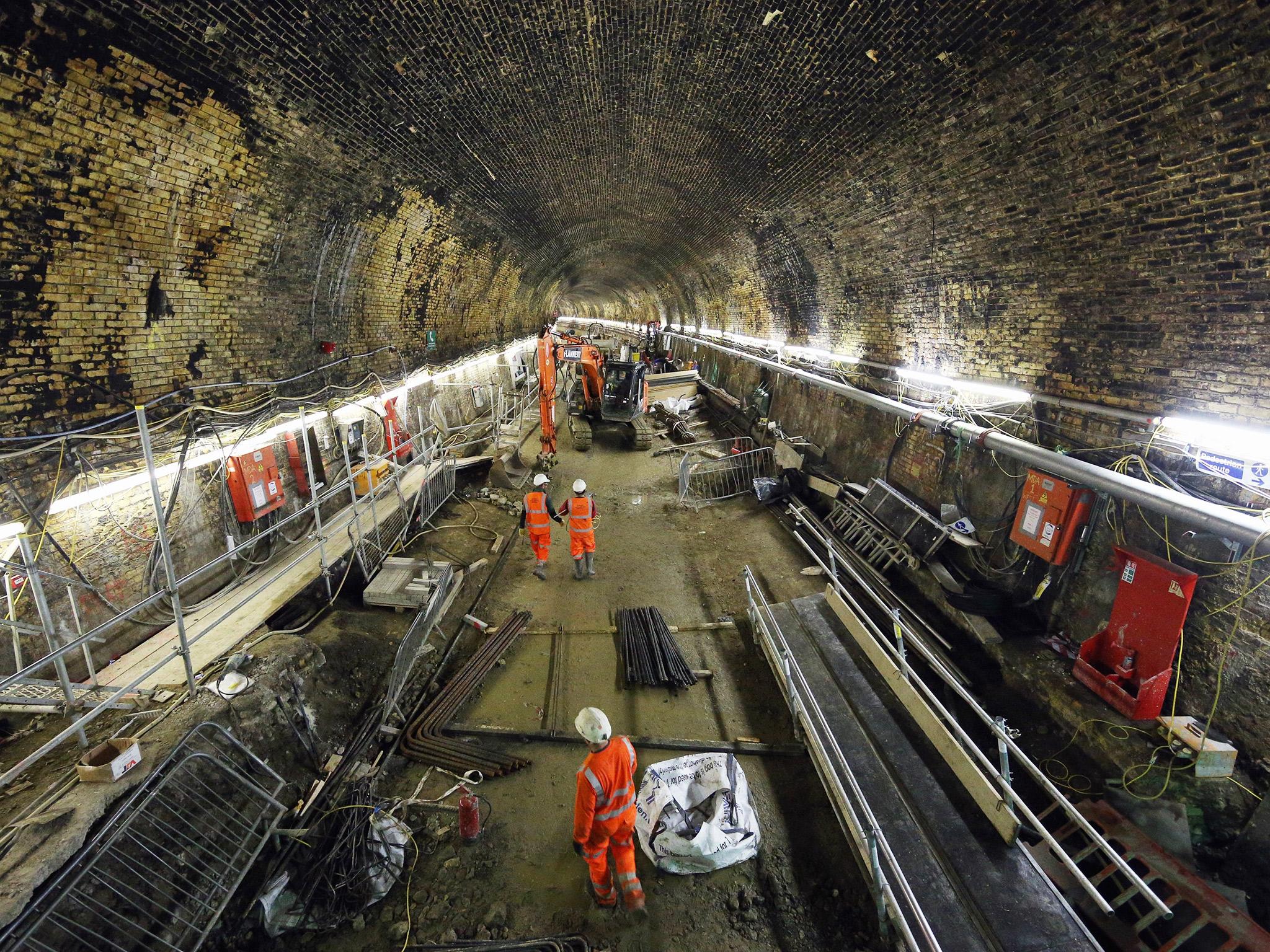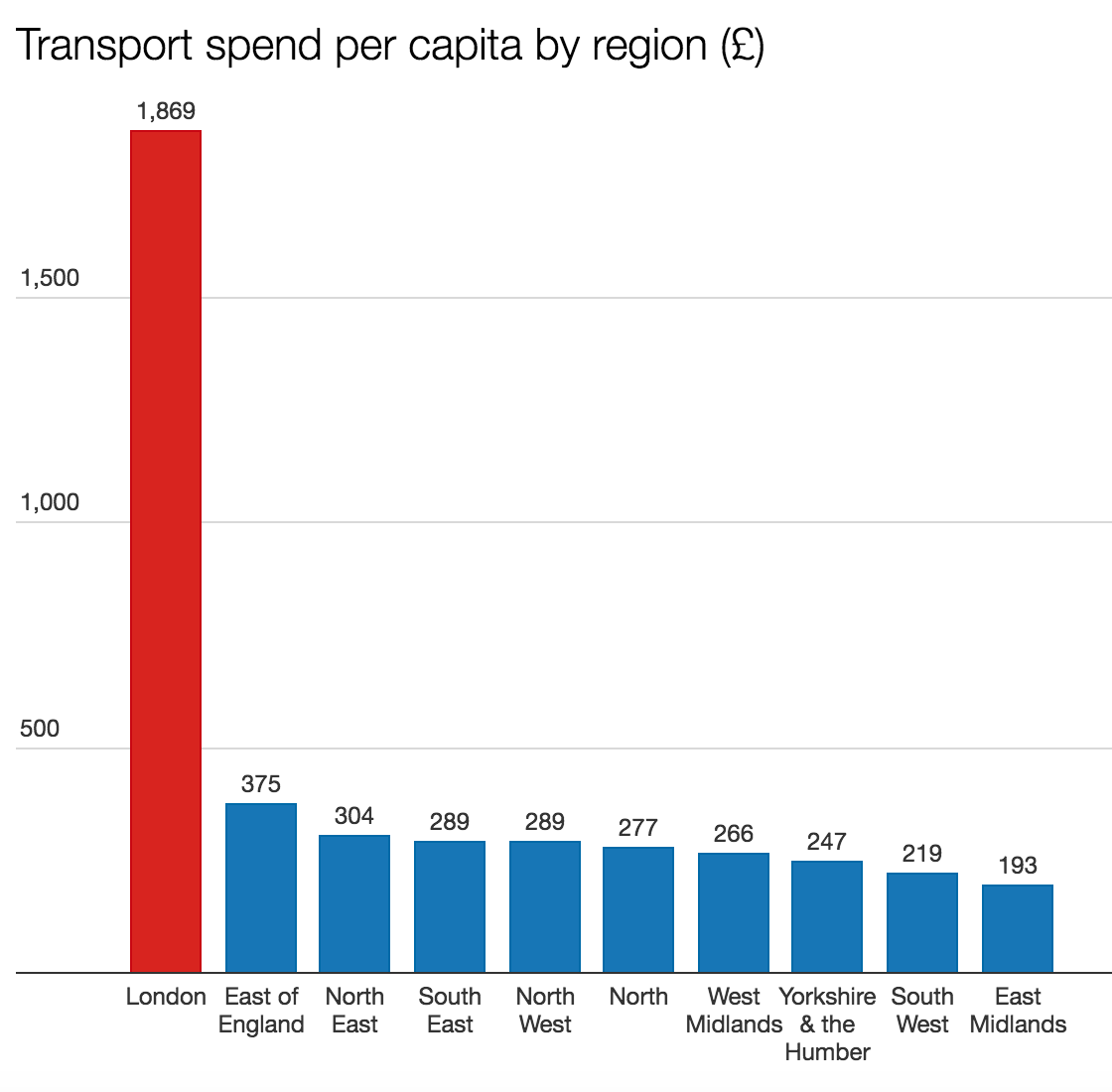Government spends six times more per person on transport in London than the North, new figures reveal
New figures suggest the Government is spending more just on Crossrail in London than on all projects across the whole of northern England

The Government is being urged to close a north-south divide in transport spending that has seen more public money spent on London’s new “Elizabeth” Tube line than on all projects across northern England combined.
A new analysis reveals that the Department for Transport will spend just £280 per person in the North over the next four years of Conservative government – compared with £1,870 per person in London.
Theresa May has previously stressed the importance of bridging the north-south divide in terms of industrial strategy for Britain, but is yet to endorse the former Chancellor George Osborne’s policy of promoting a so-called “Northern Powerhouse”.
The £1,600 North-South divide

And new figures show that, in terms of transport spending at least, the Government will spend more on those in London and the South-east regions than in the North by a factor of six to one.
The figures have been released by the progressive think-tank the Institute For Public Policy Research (IPPR), which described the lack of investment in transport links across northern England as a “national disgrace”.
The report from IPPR said the total spend on Crossrail, the project to build the new Tube line named after the Queen, will be £4.6bn between 2016-17 and 2020-21, exceeding spending on all projects in the North (£4.3bn) put together.
England's North-east will see £300 per person, the North West £290, Yorkshire & Humber £250, and London £1,900, it found.
Ed Cox, director of IPPR’s northern office, suggested a link between this disparity across different parts of the country and the strong turnout in support of Brexit in many regions of England at the referendum.
“The referendum result showed that now more than ever, we need a ‘North First’ approach to investment,” he said. “To build Theresa May’s ‘Better Britain’, we must focus on a better North.”

The IPPR has written to Chris Grayling, the new Transport Secretary, urging him to close the £1,600 transport spending gap and allow the North to "take control" of its own funding decisions.
The IPPR’s director in London, Tom Kibasi, said: “The time it takes to travel, on hugely dated infrastructure, between our great regional cities is a national disgrace – this is not what happens in Germany, Japan or France, with their fantastic rail links, or the United States, with its highly developed regional air travel.
“Given the Brexit result, the North of England must urgently see growing prosperity. A proper east-west crossing would boost northern and UK growth, and must now take priority above all other major transport projects, including Crossrail 2 and HS2.”
The Department for Transport said Mr Grayling would be responding formally to the IPPR’s letter in due course, but pointed to a package of upcoming projects in the North that include exploratory work on HS3 between Leeds and Manchester, proposals for a trans-Pennine tunnel between Sheffield and Manchester and £200 of investment in a new government body called Transport for the North.
In a statement, Mr Grayling said: “As the Prime Minister has said, we will govern for the whole United Kingdom and look to build an economy that works for everyone.
“Transport for the North are working to develop a Northern Transport Strategy and we are already making the biggest investment in transport infrastructure in generations, spending £13bn in transport across the region to improve journeys for local people, help industry grow and boost productivity.”
Join our commenting forum
Join thought-provoking conversations, follow other Independent readers and see their replies
Comments
Bookmark popover
Removed from bookmarks